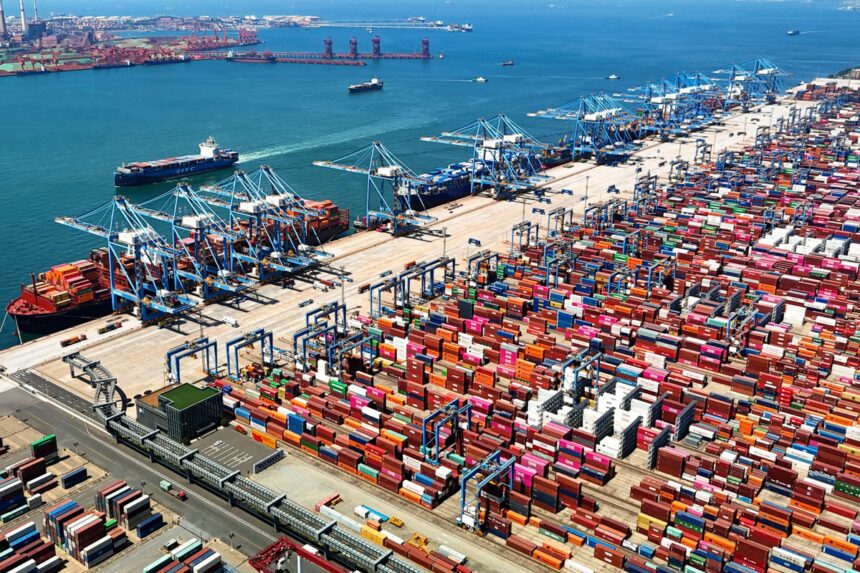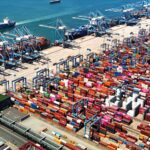China has made it clear that it will not back down in the face of President Donald Trump’s aggressive trade policies, specifically the threat of imposing a 100% tariff on imports from the country. The Chinese Commerce Ministry emphasized the importance of resolving differences through negotiation rather than resorting to threats, stating, “We do not want a tariff war but we are not afraid of one.”
This statement comes in response to Trump’s announcement of a potential increase in tariffs, set to take effect by November 1, due to new Chinese restrictions on the export of rare earth elements. These materials are crucial for a variety of consumer electronics and military products. The trade tensions threaten to derail a planned meeting between Trump and Chinese President Xi Jinping, raising concerns about the fragile truce that had momentarily brought both sides’ tariffs down from their earlier spikes of over 100%.
Since taking office, Trump has implemented increased tariffs on imports from various nations as part of his strategy to gain trade concessions. However, China has remained steadfast, leveraging its significant economic influence. The Chinese Commerce Ministry criticized the U.S. for frequently using tariff threats as a negotiation tactic, advising instead to address economic concerns through dialogue.
In its official communication, the Commerce Ministry warned that if the U.S. continues to impose tariffs obstinately, China would take “corresponding measures” to protect its interests. The exchange of accusations has intensified as both countries claim that the other side is undermining the spirit of their temporary trade peace. Trump recently indicated on social media that China has become “very hostile” in its trade practices, specifically pointing to restrictions on the export of rare earth metals.
In recent developments, Trump also threatened to impose export controls on what he referred to as “critical software,” although specifics were lacking. The U.S. has enacted new restrictions on a growing number of Chinese companies, adding pressure to an already tense trade environment.
The situation has escalated particularly around rare earth elements, where China currently dominates the market, accounting for nearly 70% of global mining and 90% of processing. This monopoly position has made access to these critical minerals a focal point of contention. The Chinese government clarified that while they would grant export licenses for legitimate civilian uses, the new regulations require foreign companies to secure government approval for any items containing these materials, regardless of where they are manufactured.
This has raised alarms among manufacturers across the globe, particularly in the United States and Europe, who rely on these materials for various products, including consumer electronics, jet engines, and military applications.
Further complicating matters, the U.S. has decided to impose new port fees on Chinese vessels, which are set to take effect shortly. In retaliation, China has announced similar port fees on American ships, signaling a potential escalation in trade hostilities that could have wide-ranging implications for global commerce. The stakes are high, and the need for diplomatic resolution is increasingly urgent as both sides prepare for a protracted standoff.







